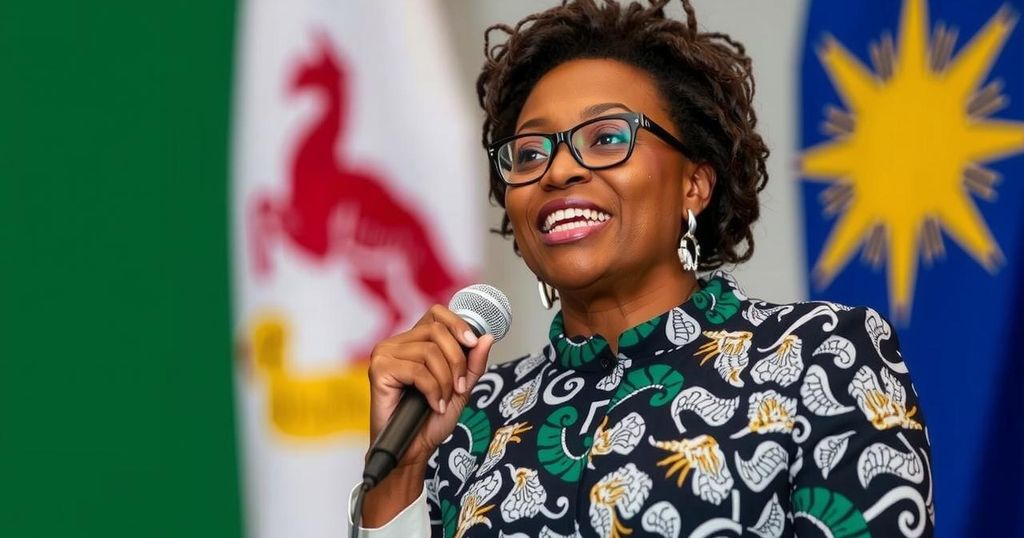Vice President Netumbo Nandi-Ndaitwah of SWAPO leads in early results of Namibia’s presidential election, marred by technical issues and opposition complaints. Voting was extended due to ballot shortages, leading to claims of illegitimacy from opposition parties. Nandi-Ndaitwah’s lead is notable as she aims to become Namibia’s first female president, while opposition seeks legal avenues to contest the results amidst public dissatisfaction with SWAPO’s governance.
In Namibia’s recent presidential election, Vice President Netumbo Nandi-Ndaitwah of the ruling South West Africa People’s Organization (SWAPO) has emerged as a leading candidate amid significant electoral challenges. Early counts suggest she holds approximately 56% of the votes, while her main opponent, Panduleni Itula of the Independent Patriots for Change, follows with around 27%. The election, conducted on November 27, 2024, faced multiple issues, including ballot paper shortages, prompting voting to be extended by three days at certain polling stations, which has led to claims of illegitimacy from opposition parties.
Despite SWAPO’s historical governance since Namibia’s independence in 1990 and Nandi-Ndaitwah’s potential to become the country’s first female president, the party faces increasing discontent. Rising unemployment and government corruption scandals have fueled frustration among voters, particularly the youth. The opposition intends to legally contest the election results, asserting that the electoral process was compromised. However, the Electoral Commission of Namibia maintains that there will be no re-election, dismissing calls for a new vote.
Namibia is known for its relatively stable democratic landscape in southern Africa and has held several peaceful elections since its independence from apartheid South Africa in 1990. However, the recent presidential election has been complicated by significant technical issues such as ballot shortages and extended voting periods, raising questions about the integrity of the electoral process. The ruling SWAPO party, while historically significant for its role in Namibia’s liberation, is now grappling with public discontent over economic hardships and corruption scandals. With over 50 countries heading to the polls in 2024, Namibia’s election is part of a broader narrative of shifting political dynamics in the region.
In conclusion, the recent presidential election in Namibia, while initially signaling a potential political milestone with Netumbo Nandi-Ndaitwah’s lead, is overshadowed by technical problems and opposition challenges questioning the election’s validity. As the opposition seeks to appeal the results, the broader implications for governance and public sentiment in Namibia and southern Africa will be closely monitored. The outcomes of this election will likely bear significant consequences for the political landscape in the region moving forward.
Original Source: apnews.com






